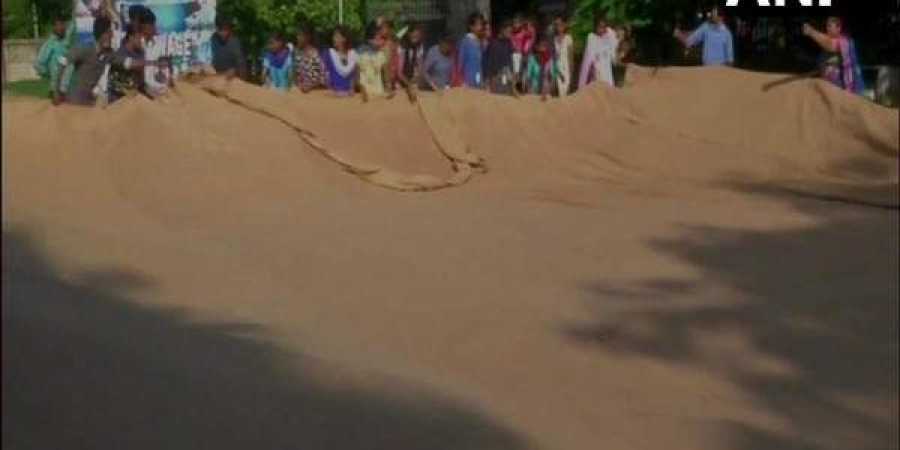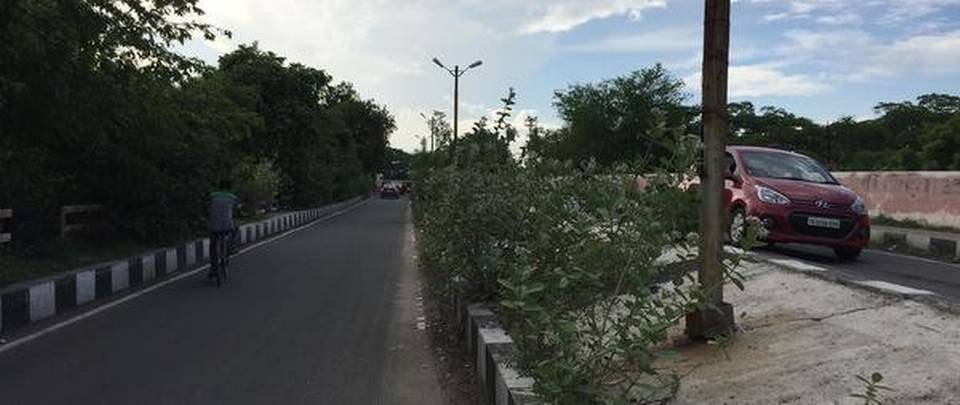Monthly Archives: September 2019
05
This Tamil Nadu village gets its first bus service after 73 years of Independence
It was nothing short of a festival for the people as they garlanded the bus and celebrated bursting crackers and distributing sweets.
Just a week ago, Tamil Nadu CM launched Chennai’s first ‘luxurious’ air-conditioned, electric buses. While it sure is a remarkable feat, a village in Tamil Nadu is celebrating a bus service being commissioned in their village – first time after independence.
73 years after Independence, this is the first ‘freedom ride’ for people of Meenakshipuram village near Virudhunagar district’s Thiruchuli town. After repeated requests and protests, the villagers’ wish for a bus service has finally come true.
With no means to travel, the villagers were forced to walk 4 km every time to nearby M Reddyapatti village to get a bus, according to a report in Vikatan . They were even denied of transportation for so long that people including school students, faced a lot of difficulties. Even the relatives of the people were reluctant to visit them because of the lack of connectivity.
It was nothing short of a festival for the people as they garlanded the bus and celebrated bursting crackers and distributing sweets. Even the driver and conductor of the bus was honoured, the report said.
Now, M Meenakshipuram will get a bus in the morning and evening to help school and college students to travel.
In a time where we celebrate phenomenal rocket launches, the sky was the only limit for these villagers on getting their first ticket to ‘freedom to travel.’ It was indeed their first freedom ride since independence.
source: http://www.newindianexpress.com / The New Indian Express / Home> States> Tamil Nadu / by Online Desk / September 02nd, 2019
Now, fish farmers can produce own farm feed
Floating feed production capacity of this feed mill is 100-150kg per hour and sinking feed production capacity is 400-500 kg per hour.
Chennai :
Fish farmers can soon prepare their own farm feed under an expert’s guidance as Tamil Nadu Dr J Jayalalithaa Fisheries University (TNJFU) has established an aqua feed extrusion mill at Muttukadu.
The feed manufacturing mill, that has come up at a cost of Rs 3.98 crore at the university’s directorate of incubation and vocational training in aquaculture (DIVA) located at Muttukadu, has been established to develop new cost-efficient feed technologies and formulations which will be disseminated to fish farmers for preparing their own on-farm feed at a lesser cost, compared to commercial feeds available in the market.
Vice-chancellor of the university, S Felix said fish farmers from across the State, can visit the plant with their raw materials and will be provided all necessary assistance to make their own fish feed. Felix said that the aim of the project is to help fish farmers in minimising the feed cost in fish farming and enhance their profitability. The mill will be inaugurated within a fortnight. The mill will also boost the research activities to develop cost-efficient feeds formulations for Tilapia and Pangasius fish varieties and special broodstock feeds for Carps, said the varsity official.
Floating feed production capacity of this feed mill is 100-150 kg per hour and sinking feed production capacity is 400-500 kg per hour.
The cost of new aquafeed extrusion mill building is Rs 50 lakh. The mill has been established under the project on the development of cost-efficient feeds, funded by NADP.
MoUs to be signed
The TNJFU will soon sign a memorandum of understanding with fisherfolk, farmers and new feed mill companies, to transfer the technologies.“The fish feed manufactured in our mill will be much cheaper than the products of private companies,” said Felix.
source: http://www.newindianexpress.com / The New Indian Express / Home> States> Tamil Nadu / by Binita Jaiswal / Express News Service / September 03rd, 2019
Guinness Record: Nine visually challenged people stitch ‘world’s largest jute bag’ in Coimbatore
Members of the transgender community and students of a technical institute in Coimbatore assisted the visually challenged people during the process of stitching the bag to make a record.

Coimbatore :
With an aim to make an entry in Guinness World Record and spread awareness about no-use of plastic, nine visually challenged people have stitched the “world’s largest jute bag” measuring 66ft-tall and 33ft-wide in just five hours.
Members of the transgender community and students of a technical institute in Tamil Nadu’s Coimbatore district on Friday have assisted the visually challenged people during the process of stitching the bag to make a record.
Shashi Kala, the Chairman of Yuva Foundation, who orgainsed this attempt, said, “Nine visually challenged people from Yuva Foundation set out to make a Guinness World Record by sewing a 66-feet high and 33-feet wide jute bag without a handle. The jute bag was stitched to sensitise the people to stop using harmful plastic bags and switch to eco-friendly alternatives.”
Alluding to the famed speech by Prime Minister Narendra Modi from the ramparts of the Red Fort on the Independence Day where he urged the people and shopkeepers to eliminate the use of plastic bags completely, Shashi Kala said, “We have to launch a war against the plastic. This is the reason why our people have stitched a jute bag.”
She added, “Through the attempt, we also want to prove it to the society that differently-abled people have their own ability and it is our responsibility to give them confidence and encouragement.”
source: http://www.newindianexpress.com / The New Indian Express / Home> Good News / by ANI / September 01st, 2019
A century old, and creaking

Once a lifeline for motorists and railway workers, the steel overbridge in Perambur Loco Works is now in a state of neglect
The British-era steel overbridge across the railway line in Perambur Loco Works is eroding. Signs of erosion will be visible to anyone who bothers to take a close look at the facility. Often, motorcyclists using the overbridge stick to one lane as half of the carriageway has eroded, exposing rusted steel beams beneath it.
Located between the railway stations at Perambur Carriageway and Villivakkam, the steel overbridge was built in the early 1930s to connect railway institutions, including Loco Works and ICF. It has two steel bridges with bitumen-topped ramps that are separated by a concrete sloppy median. The steel bridge towards Periyar Nagar and Kolathur is older; the second bridge was constructed by the Chennai Corporation in 2011 to decongest the lone narrow bridge.
For long, the overbridge was the only source of connectivity to various institutions from Loco Works and Perambur.
It’s still popular among a section of people. Even today, hundreds of railway employees and motorists use the overbridge to reach the rail line. As the main entrance of Loco Works is located near the ramp of the overbridge, it is convenient for the staff to reach the bridge. But, maintenance of the overbridge is deteriorating.
Over the years, the overbridge and its ramps have been damaged due to poor maintenance and weathering. Most of the electrical fittings including bulbs on the lamp posts are either damaged or stolen. Overgrown bushes on the concrete median block the view of pedestrians, who are mainly rail commuters from Loco Works railway station and railway employees.
The speed breakers on the ramp especially towards Periyar Nagar are not painted. The connecting roads to the bridge also do not have adequate street lights, forcing motorists to rely on the headlights of the vehicles.
“At night, we cannot see the unevenness of the carriageway, especially towards Perambur. I have seen people skid on the overbridge,” says K. Shanmugam, a motorist from Perambur. He says most of the street lights on the ramp are not functioning and many pedestrians carry small pocket-sized touch lights to cross the section.
“Steps will be taken to give a facelift to the overbridge soon,” says a Corporation official.
source: http://www.thehindu.com / The Hindu / Home> News> Cities> Chennai / by D. Madhavan / August 31st, 2019